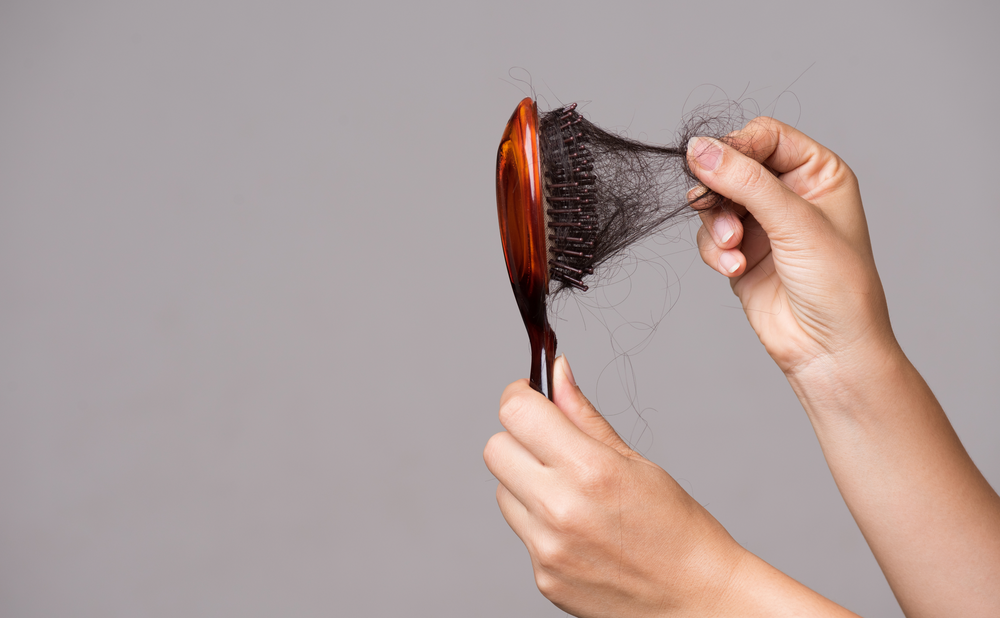Hair loss can be caused by several factors, including genetics, hormones, stress, diet, medications and other lifestyle choices (e.g., smoking). But did you know that a rise in DHT is one of the most typical reasons for hair loss worldwide?
What is Dihydrotestosterone (DHT)?
DHT, also known as dihydrotestosterone, is a hormone in both men and women. The ovaries and prostate convert testosterone into DHT, facilitated by the enzyme 5-alpha reductase (5-AR).
DHT is a critical player in puberty and aids in the growth and maintenance of features in males, such as muscles, facial hair, a deep voice, etc. It also contributes to the production of estrogen in women. These hormones assist in maintaining muscle mass as you age and support sexual health and fertility.
What Does the DHT Hormone Do?
DHT is produced naturally in both males and females, but it is present in much greater quantities in men. A man's body produces more testosterone, which is converted into DHT.
High levels of dihydrotestosterone result from excessive testosterone production, and both men and women can experience this. Men have specific observable changes, such as an enlarged prostate and prostate cancer. In women, it results in excessive body and facial hair, menstrual irregularities and adult acne.

Similarly, men and women experience a delayed onset of puberty when their DHT levels are too low. Since DHT function is tightly linked to male features, low DHT affects women less often than men.
Males with low levels of DHT may experience incomplete or delayed sex organ development, an increased risk of aggressive prostate cancers, and alterations in the distribution of body fat capable of resulting in disorders like gynecomastia. Additionally, body hair may not grow normally.
DHT levels may rise with age and have a role in hair loss. DHT can connect to receptors on the hair follicles when it circulates freely in the bloodstream. As a result, the follicle miniaturizes or shrinks, and finally, new hair growth stops. Therefore, despite all of its advantages, high levels of DHT contribute to hair loss.
Women and DHT Production
Women with too much dihydrotestosterone may develop increased body, facial, and pubic hair growth (called hirsutism), menstrual cycle disruption (amenorrhoea), and increased acne. Abnormal changes to the genitalia may also occur in women with too much dihydrotestosterone.
While usually associated with men, women also produce DHT. When levels of DHT become too high, it can cause hair follicles to shrink.
Men and DHT Production
The hormone dihydrotestosterone is responsible for causing male-pattern baldness. DHT is thought to cause hair follicles to miniaturize, contributing to male-pattern hair loss. By the age of 50, more than half of men in the U.S. will experience hair loss mediated by DHT. Treatments to block DHT may help prevent hair loss.
Why Does DHT Affect People Differently?
The genetic component of hair loss means it is inherited from your family. If you're a male and your father has male-pattern balding, there's a good chance you'll develop the same balding patterns as you age. DHT can have a more noticeable effect if you also have a genetic propensity for hair loss.
Why Do High Levels of DHT Lead to Hair Loss?
Follicles, a structure or group of microscopic capsules found beneath your skin, are the source of every hair on your body. Each follicle goes through a growth cycle with four stages:
- Sprouting (anagen)
- Transitional (catagen)
- Resting (telogen)
- Shedding (exogen)
Hair enters the resting stage after each cycle before eventually falling out. Afterward, the follicle grows new hair, and the cycle repeats.
The growth cycle is interrupted when DHT accumulates over time in the hair follicles. It shortens the hair development cycle and, through a process known as miniaturization, reduces the size of your hair follicles. Reproduction of hair is slowed down (remaining in the resting phase for longer or reducing the growing phase). When DHT levels are too high, new hair takes longer to develop once the old hair falls out.
Your hair becomes brittle, thin, fragile, and lighter in color, and it falls out more quickly with each consecutive life cycle due to DHT's detrimental effect on the follicle. The follicles eventually stop producing hair and shut down.
Some people are more susceptible to DHT's effects on scalp hair depending on their androgen receptor (AR) gene. The AR gene can increase androgen receptivity in the scalp's follicles, resulting in improved chances of male-pattern baldness and hair loss.
DHT's Link to Baldness
Dihydrotestosterone plays a role in regulating testosterone levels and maintaining healthy skin and hair. However, too much DHT can cause hair loss. In fact, about half of all men experience some degree of hair thinning during adulthood. This is called male-pattern baldness or androgenetic alopecia.
Hair loss affects nearly 50 million American adults, and according to a recent study published in JAMA Dermatology, up to one-third of men over age 40 experience some degree of male-pattern baldness.
While DHT levels naturally increase with age, certain lifestyle choices such as smoking, drinking alcohol, poor diet, high levels of stress, and taking certain medications can also increase DHT production. This can lead to increased hair shedding, thinning hair, and male-pattern baldness.
A Receding Hairline Is a Symptom of High DHT
A receding hairline is one of the most common signs of male-pattern baldness, but it's not always a sign of aging. Many factors contribute to hair loss, including genetics, diet, stress levels, hormone imbalances, medications and illness. In men over 40, there is usually no reason to worry about hair loss unless you experience significant thinning. However, if you notice a change in your hairline, talk to your doctor about possible causes.
Hair Loss at the Temples and on the Crown Are Symptoms of High DHT
High levels of DHT are linked to hair loss at the temples and on the crown of the head. This is because DHT affects the follicles at the scalp level.
Shaving the scalp once every three days helps reduce the amount of DHT produced by the body. However, it only partially eliminates it. If you notice hair loss at the temples or on the crown of the skull, consult a doctor about whether there is a connection to high levels of DHT.
Treating DHT Baldness
The good news is there are various DHT blockers available in the form of medications, shampoos, foods and supplements if you're wondering how to stop or reduce DHT-caused hair loss.
Here are some tips on how you can naturally treat DHT balding:
- Eat healthy fats. Fatty fish like salmon and mackerel contain omega-3 fatty acids that promote hair growth. Omega 3s are found in walnuts, flaxseed oil and chia seeds.
- Drink plenty of water. Water helps keep your scalp hydrated, which promotes hair growth.
- Get enough sleep. Lack of sleep causes stress hormones to build up in the body including testosterone levels. This leads to hair loss.
- Exercise regularly. Regular exercise improves circulation and increases blood flow to the scalp.
- Avoid smoking. Smoking reduces blood flow to the head, causing hair loss.
- Use essential oils. Essential oils such as rosemary, peppermint, tea tree and eucalyptus are great for hair care. Fortunately, our Divi lineup includes many of these ingredients in each of our formulas.
How to Test Your DHT Levels?
Visit a dermatologist or physician to determine your DHT levels. They may advise a saliva panel test or a blood test. You should get the test after seeking expert advice, particularly if you are worried about DHT and hair loss.
Dermatologists are trained to recognize male-pattern baldness or hair loss and can provide you with correct, helpful advice and the required procedures to take.
Don't Wait: Get Help Today
Hair loss is a progressive condition that begins slowly and progresses over time. If you notice changes in your hair, it could be a sign of something serious. You don’t want to wait too long to seek treatment because early detection leads to better outcomes and fewer side effects.
There are many treatments available to help restore healthy hair growth. Often, a change to your hair care routine could help with hair loss. One area to focus on with hair growth is your scalp, which is the garden in which your hair should grow and flourish. Without a healthy garden, your hair won’t thrive.
Divi's Scalp Serum, Shampoo & Conditioner contain proven, clean ingredients to help manage hair loss symptoms and restore scalp balance. Divi’s focus on scalp health is a proven method of helping people with hair loss conditions.






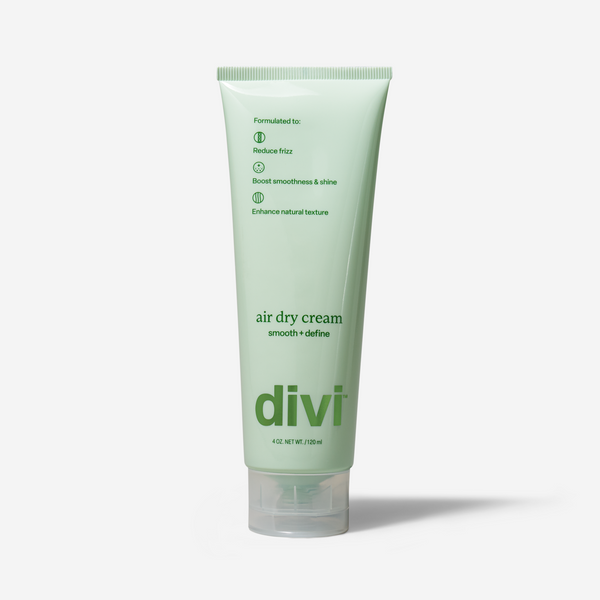


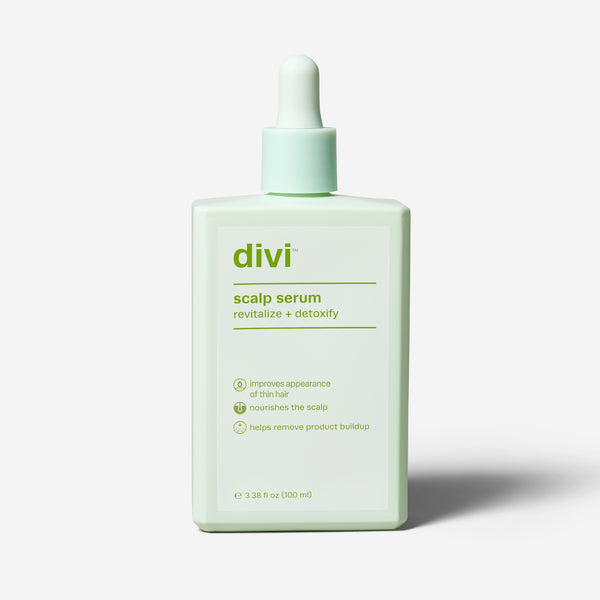

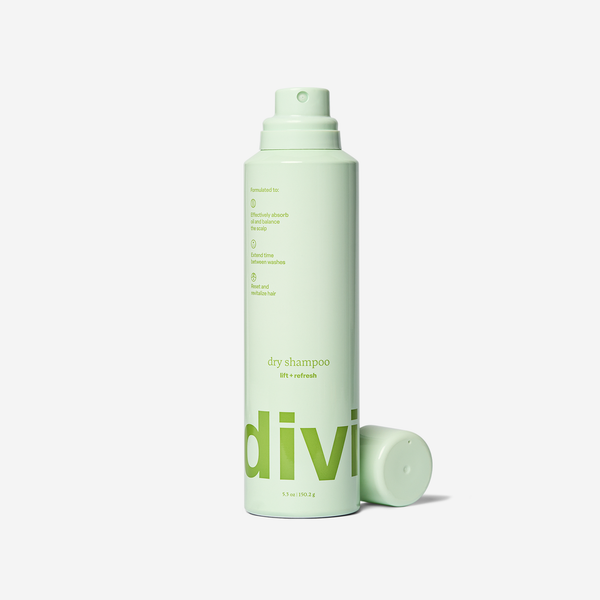

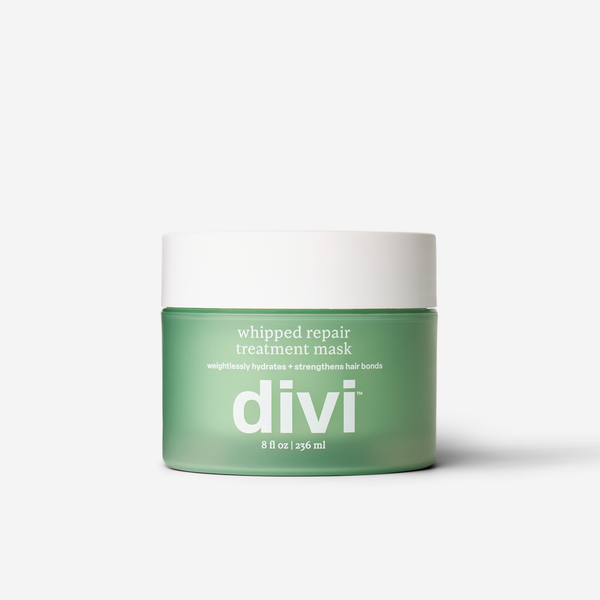
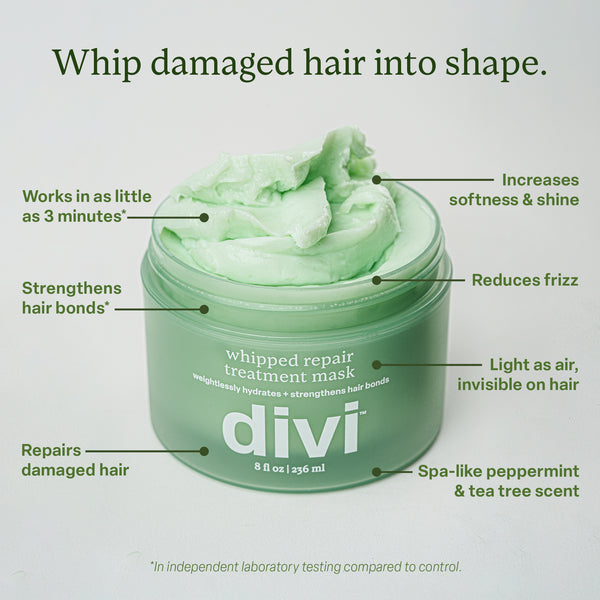
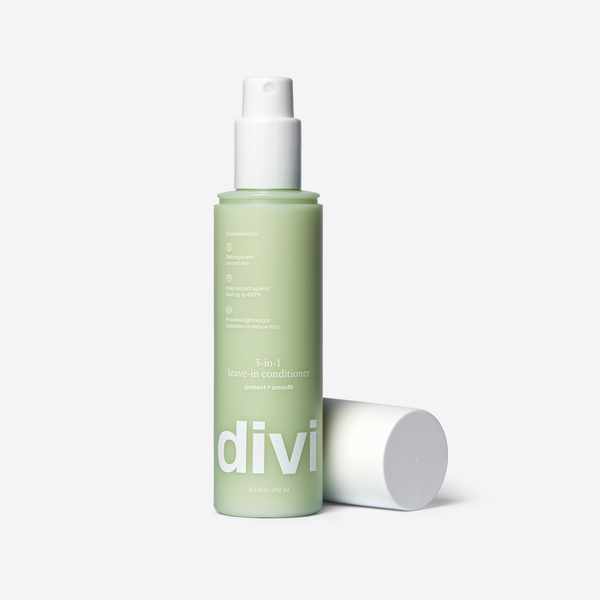

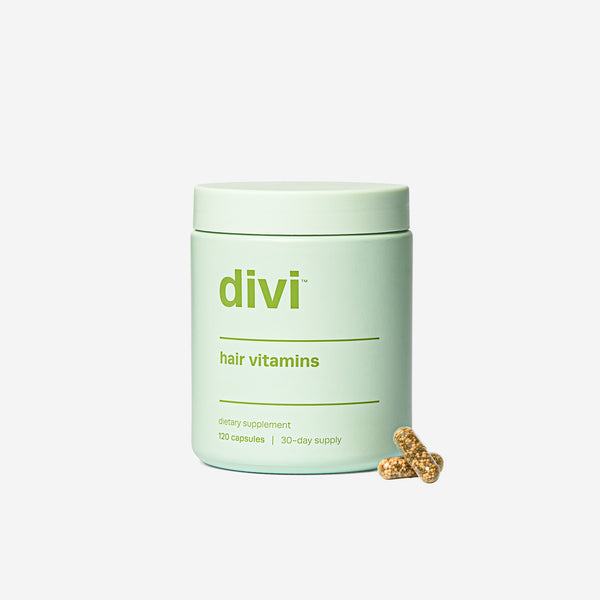
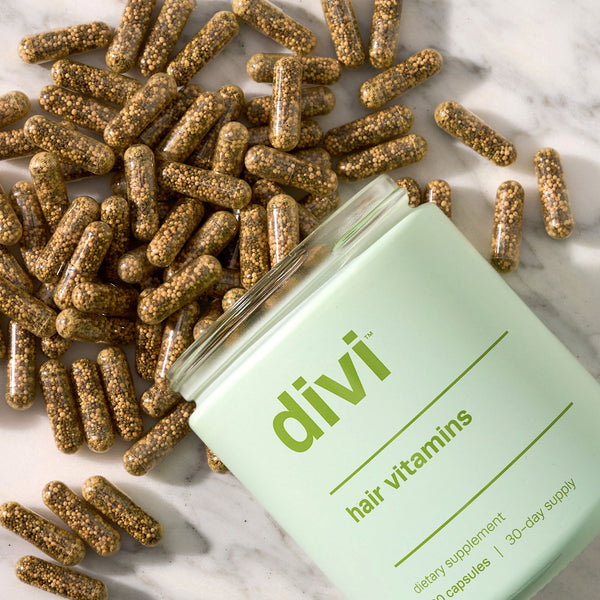






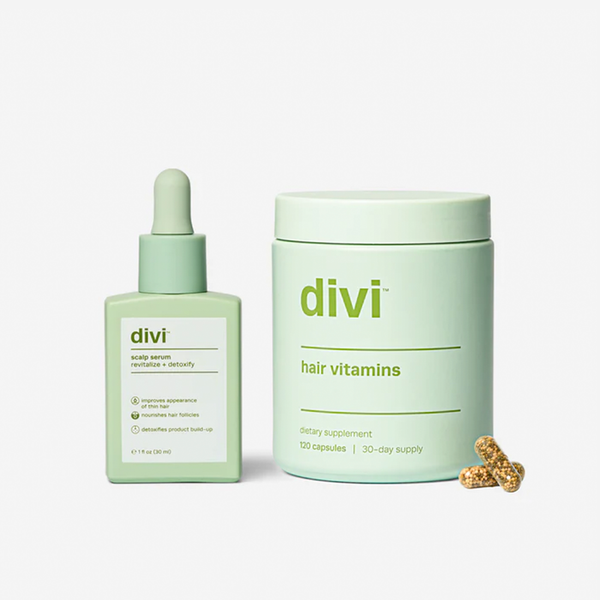
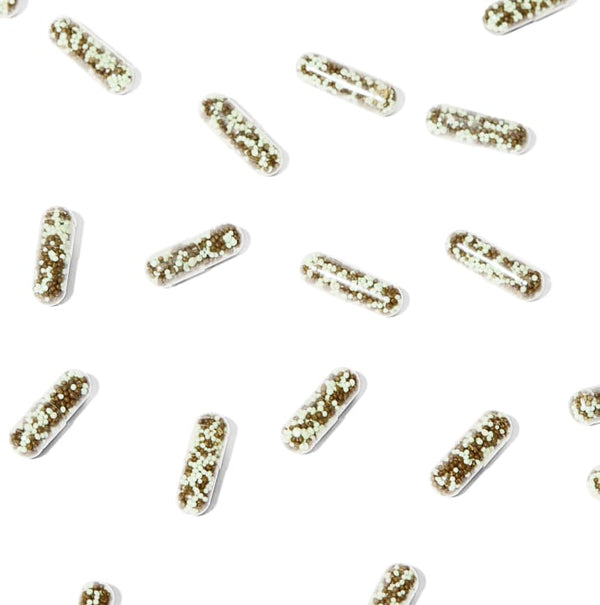




















 30ml Scalp Serum
30ml Scalp Serum
 100ml Scalp Serum
100ml Scalp Serum
 Volumizing Shampoo
Volumizing Shampoo
 Hydrating Shampoo
Hydrating Shampoo
 Travel-Sized Volumizing Shampoo
Travel-Sized Volumizing Shampoo
 Travel-Sized Hydrating Shampoo
Travel-Sized Hydrating Shampoo
 Volumizing Conditioner
Volumizing Conditioner
 Hydrating Conditioner
Hydrating Conditioner
 Travel-Sized Volumizing Conditioner
Travel-Sized Volumizing Conditioner
 Travel-Sized Hydrating Conditioner
Travel-Sized Hydrating Conditioner
 3-in-1 Leave-In Conditioner
3-in-1 Leave-In Conditioner
 Best Sellers Bundle
Best Sellers Bundle
 Volumizing Starter Bundle
Volumizing Starter Bundle
 Hydrating Starter Bundle
Hydrating Starter Bundle
 The Healthy Hair Bundle
The Healthy Hair Bundle
 Hair Vitamins Trio
Hair Vitamins Trio
 Dry Shampoo
Dry Shampoo
 Hair Vitamins
Hair Vitamins
 Volumizing Shampoo & Conditioner
Volumizing Shampoo & Conditioner
 Travel-Sized Volume Duo
Travel-Sized Volume Duo
 Hydrating Shampoo & Conditioner
Hydrating Shampoo & Conditioner
 Travel-Sized Hydrating Duo
Travel-Sized Hydrating Duo
 Travel-Sized Dry Shampoo
Travel-Sized Dry Shampoo
 Travel-Sized Dry Shampoo Trio
Travel-Sized Dry Shampoo Trio
